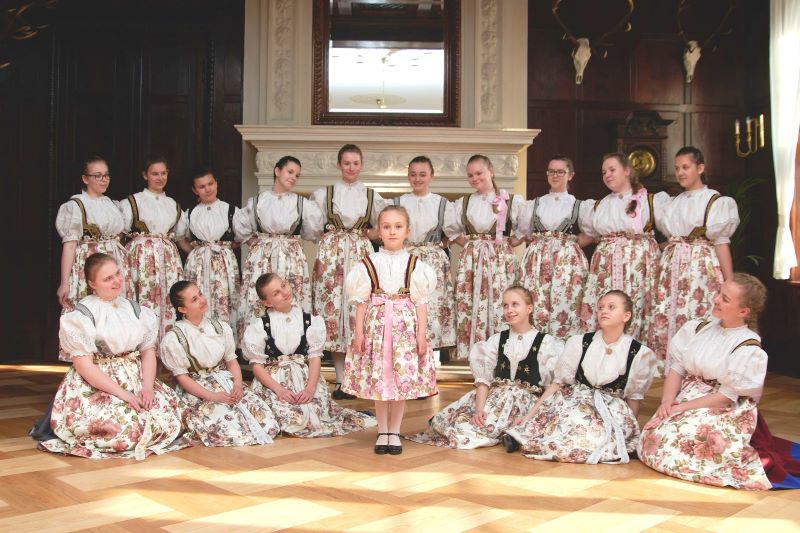School classes are made up of children from many different environments, sometimes coming from foreign countries. Instead of looking at them with scepticism and fear, we should try to understand them and learn from one another.
Contact
Barbara Grabowska, PhD, DLitt, Assoc. Prof. from the Institute of Pedagogy of the University of Silesia – barbara.grabowska@us.edu.pl
| Author: Weronika Cygan-Adamczyk |
For centuries, there has been great ethnic and religious diversity in the territory of present-day Poland. It was not until the forced resettlement of the population after 1945 and the attempts to create a single, valid ‘Polish identity model’ that Poland became one of the most homogeneous countries in the world. It is more difficult for us to open up to people from other cultures when we are not in contact with them, and it is also easier to fall into the trap of stereotypes. The solution may lie in intercultural education, making it easier to open up to the ‘stranger’.
Combining knowledge with emotions
It is easy to confuse multicultural education with intercultural education, as both refer to diverse backgrounds. However, there is a fundamental difference. In the first case, we gain knowledge about other cultures, try to understand them, but the engagement is missing and we may still maintain the belief that ‘others’ are alien to us.
‘Intercultural education is an attempt to break the standstill of multicultural education. This is because it focuses on interactions between people from different cultures. We encourage an understanding of the Other, a respect for difference. Most importantly, intercultural education makes it easier to understand that all cultures are equally valid and valuable. It enables us to get rid of the feeling of superiority’, explains Barbara Grabowska, PhD, DLitt, Associate Professor at the Faculty of Arts and Educational Science of the University of Silesia in Katowice.
Knowledge alone is not enough to instil certain attitudes in someone, which is why teaching methods that involve emotions and make the student feel something on their own are so effective. Ideally, young people from different backgrounds should be in the same class or school because this is the easiest way to exchange experiences. However, even when this is not possible and the group is homogeneous, tried and tested simulation methods can be used. One such method is role-playing, where students are assigned distinctive characteristics and told to act out certain scenarios. This alone is enough to trigger empathy and a sense of ‘stepping into someone else’s shoes’.
Janina Marcinkowa Student Song and Dance Ensemble ‘Ziemia Cieszyńska’, Cieszyn folk costume | Photo: Wojciech Korpusik
Teacher’s sensitivity
A lot depends on the teacher, their sensitivity and whether they learned the tenets of intercultural education themselves. You can equip someone with knowledge, but you cannot force anyone to treat another person with respect.
‘Intercultural education implies respect, understanding, and acceptance of cultural differences, and teachers play a key role in shaping this approach at school. An important part of a teacher’s sensitivity to cultural diversity is the ability to notice and appreciate differences between students. The teacher should be aware that their pupils may come from different cultural backgrounds and have different traditions, languages, values, and norms. The teacher’s sensitivity allows to effectively account for them in the teaching process’, believes Prof. Barbara Grabowska.
Therefore, the teacher should be open to intercultural dialogue. In doing so, communication is key to understanding and resolving any difficulties arising from cultural differences. A sensitive educator adapts teaching methods and teaching materials to the students’ diverse cultural backgrounds. They should also create an atmosphere of mutual respect and acceptance so that students can share their experiences. The researcher notes that such an approach not only fosters a better understanding of cultural differences but also promotes mutual respect and opens students to cooperation, which is an important part of preparing the younger generation to function in a global society.
Silesian experiences
For centuries, Silesia has been a place where different cultures and faiths meet. They were able to coexist in harmony for a long time. It is not unusual to find a German-sounding surname in the region, and you may come across Protestant churches in the vicinity of a Catholic church. A remnant of the former cultural melting pot are also the (unfortunately much neglected) Jewish cemeteries.
As a border region, Silesia was able to reconcile different realities, at least until World War I and then World War II, when changes to the existing borders threw the people living in the area into a completely different world, which they had to learn anew.
‘The Silesian language encountered difficulties. Following population movements and after Silesians of German origin were forced to leave their homes, there was a shortage of labour. Teachers from different parts of Poland were hired and many of them did not know Silesian. They fought against it all the more because they did not understand what their pupils were saying to them’, says Prof. Barbara Grabowska.
If intercultural education had been known at the time, it might have been possible to avoid at least some of the harm and trauma that Silesian pupils suffered back then. Fortunately, today we do not have to repeat past mistakes, and by appreciating other cultures, we can learn a lot from each other.
The article entitled ‘To learn about cultures is to appreciate differences. Intercultural education’ was published in the popular science journal of the University of Silesia No Limits no. 1(9)/2024.






